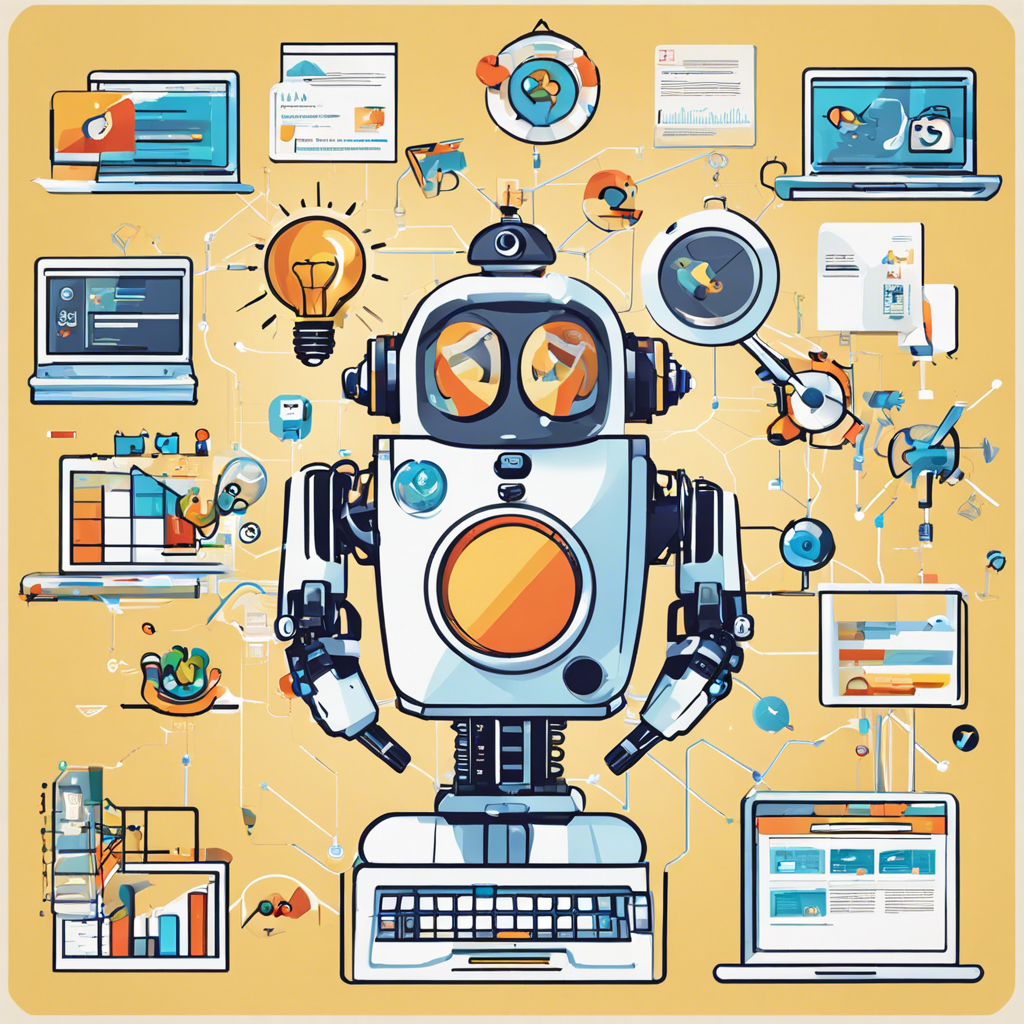AI’s impact on search engine marketing strategies, transforming the way businesses attract and engage audiences online.
The advent of artificial intelligence (AI) has revolutionized numerous industries, and search engine marketing (SEM) is no exception. AI is reshaping the way search engines operate, understand user queries, and deliver results, thereby significantly impacting the strategies employed by marketers to reach and engage their target audiences. This article explores the profound influence of AI on SEM, highlighting the emerging trends, opportunities, and challenges that businesses need to understand to stay ahead in the digital marketing landscape.
AI-Powered Search Engine Evolution
The integration of AI into search engines has ushered in a new era of sophisticated algorithms and machine learning models. Google, the undisputed leader in search, has been at the forefront of this transformation. With algorithms like RankBrain, Google can now interpret complex user queries, understand intent, and deliver more accurate and contextually relevant results. This evolution in search engine technology has far-reaching implications for SEM, as marketers must now focus on creating content that aligns with the evolving nature of search.
For an in-depth understanding of Google’s approach to AI, you can read Google’s AI blog, which offers insights into their cutting-edge research and applications. This resource provides a valuable window into the future of AI-powered search. Additionally, the SEO Tribunal website offers an extensive review of SEO tools and software, helping marketers stay ahead of the curve in the rapidly changing landscape.
AI and Keyword Intelligence
Understanding User Intent
AI-powered search engines have moved beyond simple keyword matching. They can now interpret the intent behind user queries, providing a deeper understanding of what users are seeking. This shift has significant implications for keyword research and targeting. Marketers must now focus on creating content that satisfies the informational, navigational, or transactional intent of users. Tools like Google Ads’ Keyword Planner, Ahrefs Keyword Explorer, and SEMrush’s Keyword Magic Tool are invaluable for uncovering keywords that align with user intent.
Semantic Search and Contextual Understanding
Semantic search, fueled by AI, enables search engines to understand the relationships between keywords and concepts. This capability allows for more accurate results, even for complex or ambiguous queries. Marketers should create content that provides comprehensive and contextual information to address a wide range of user queries.
Tips for Semantic Search Optimization:
–
Conduct thorough keyword research
to identify relevant terms and phrases.
–
Create content that covers various aspects
of the main topic, providing a comprehensive resource.
–
Use structured data markup
to help search engines understand your content’s context.
AI-Driven Content Creation and Optimization
AI-Assisted Content Generation
AI tools are now capable of assisting in content creation, from generating initial outlines to drafting entire pieces. These tools can analyze existing content, identify gaps, and suggest improvements. While AI-generated content should be reviewed and edited by human marketers, it significantly streamlines the content creation process.
Optimizing for Featured Snippets and Voice Search
AI plays a crucial role in determining which content appears in featured snippets, the concise answers provided at the top of Google search results. Marketers can optimize content for featured snippets by focusing on providing direct answers to common questions. This strategy is also vital for voice search optimization, as voice assistants often source answers from featured snippets.
The Future of AI in SEM: Opportunities and Challenges
Continued AI Integration
The future of SEM will undoubtedly see further integration of AI, with algorithms becoming even more sophisticated. Marketers will need to adapt their strategies to keep pace with evolving search engine capabilities. This includes investing in AI-powered tools for content creation, analytics, and optimization.
Personalization and Real-Time Marketing
AI enables search engines to personalize results based on user behavior and preferences. Marketers must create content that caters to these personalized experiences, delivering relevant and engaging content to individual users. Real-time marketing, driven by AI, will become increasingly important as businesses strive to capture immediate attention and action.
Questions
Q: How can businesses stay competitive in an AI-dominated SEM landscape?
A: Staying competitive requires embracing AI technologies and tools. Invest in AI-powered platforms and software for content creation, keyword research, and analytics.
Q: What are the potential ethical concerns surrounding AI in SEM?
A: Ethical considerations include data privacy and the potential for biased algorithms. Marketers should ensure they follow ethical guidelines and use data responsibly.
Q: Can AI completely replace human creativity in content creation?
A: While AI can assist in content generation, human creativity and oversight are still essential. AI should be seen as a tool to enhance, not replace, human creativity.
Conclusion
AI’s impact on search engine marketing is profound and transformative. From understanding user intent to optimizing content for featured snippets, marketers must adapt their strategies to the AI-driven search landscape. By embracing AI technologies and understanding the evolving nature of search, businesses can remain competitive and effectively connect with their target audiences. The future of SEM lies in the seamless integration of AI and human expertise, creating a more personalized and engaging online experience for users.
